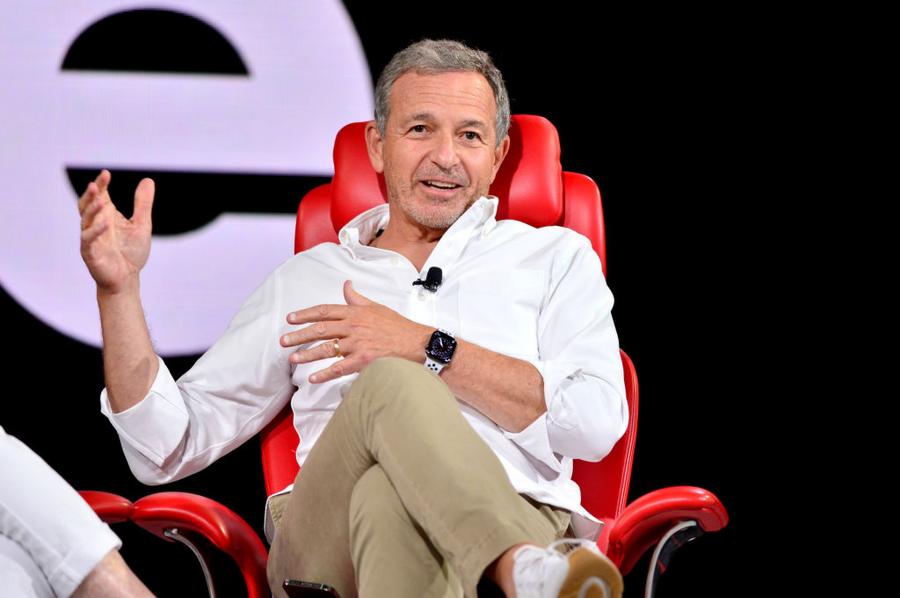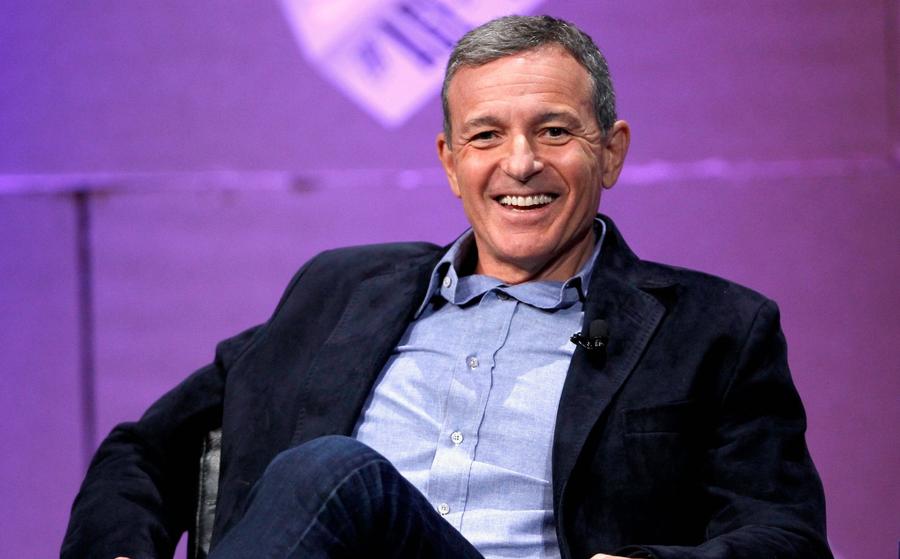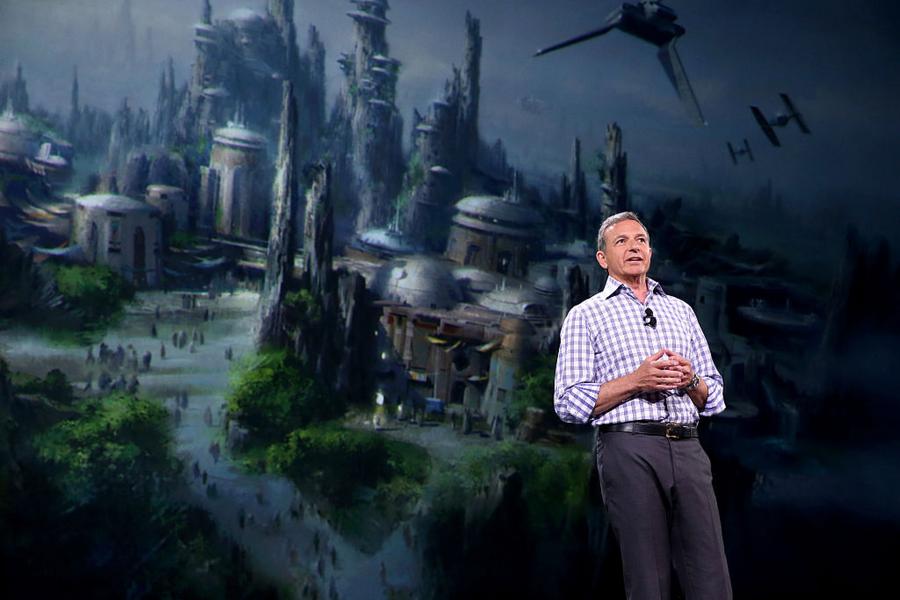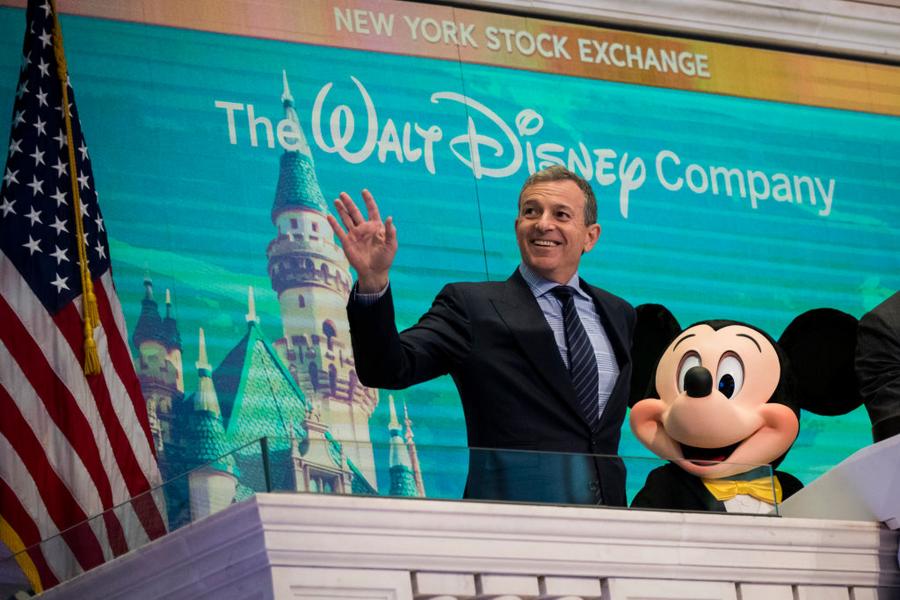What is Robert Iger's Net Worth and Salary?
Robert Iger is an American businessman and CEO who has a net worth of $600 million. Bob Iger is best known for his long tenure as CEO of The Walt Disney Company, where he oversaw one of the most transformative periods in the company's history. He began his career in the 1970s at ABC, working his way up through programming and management roles. After Disney acquired ABC in 1996, Iger became a top executive within Disney, eventually rising to president and COO in 2000 and succeeding Michael Eisner as CEO in 2005.
As CEO, Iger prioritized quality storytelling, technology, and global expansion. He spearheaded a string of landmark acquisitions that reshaped Disney's portfolio, including Pixar in 2006, Marvel Entertainment in 2009, Lucasfilm in 2012, and 21st Century Fox in 2019. These deals added some of the most valuable intellectual property in the world to Disney's portfolio, fueling decades of future content. He also invested heavily in theme parks and consumer products, while expanding the company's global reach with ventures like Shanghai Disney Resort.
In 2019, Iger launched Disney+, the company's direct-to-consumer streaming service, which quickly became a dominant player in the streaming wars. His leadership was marked by a steady, strategic approach, in contrast to the more combative style of his predecessor. Under Iger, Disney's market value increased more than fivefold, making it one of the most powerful media companies in the world.
When Iger first took over as CEO in 2005, the company's market cap was around $50 billion. When he stepped aside in 2020, the company's market cap was $250 billion. At the peak of COVID, with Disney+ streaming hype in full force, Disney's market cap briefly touched $360 billion in March 2021. The year Bob Iger took over as CEO, the company generated $2.5 billion in profit. In 2019 – his last full year as CEO – the company generated $10.4 billion in revenue. Disney shares rose 400% between 2005 and 2020 – not including dividends.
Iger retired as CEO in early 2020 but remained executive chairman through 2021 to guide the company through the pandemic and the leadership transition. After his successor Bob Chapek struggled amid internal and external challenges, Iger returned as CEO in late 2022.
Disney Stock Holdings & Sales
Over the years, Bob Iger has sold more than $1 billion worth of Disney stock, gradually unwinding much of the equity he accumulated during his long tenure as CEO. His share ownership peaked in early 2019 at about 1.2 million shares, reflecting decades of stock grants and option exercises, but since then he has steadily reduced his position. Among his largest transactions was a June 2021 sale of 550,570 shares for nearly $100 million in proceeds, followed by a November 2024 sale of 372,412 shares tied to option exercises worth about $42 million. Earlier in his career, Iger largely held onto his grants, but as options approached expiration and after stepping down as CEO, he became a more active seller. By January 2024, his holdings had fallen to just over 200,000 shares, down more than 80% from their peak. While he continues to maintain a stake in Disney, Iger's stock history reflects both the enormous value created during his leadership and the way his personal fortune has been realized through systematic insider sales disclosed in SEC filings.
Bob Iger Disney Compensation History
From 2005 through 2020, Bob Iger's base salary generally ranged between $2 million and $3 million per year (with a brief bump to $3 million+ after his 2017 contract extension). Over 15 years as CEO, his cumulative salary was about $45–50 million.
By contrast, the overwhelming majority of his compensation came in the form of equity (stock awards and options). Depending on the year, stock-based comp represented 60–80% of his total package. Adding up Disney's proxy disclosures, Iger's cumulative equity compensation exceeded $400 million in grant-date value. In some peak years (2014–2019), he received $20–40 million worth of equity awards annually, plus large one-time grants (notably the 2018 Fox deal package, which alone delivered $35+ million in stock units that year).
To put it in perspective:
- Salary (2005–2020): ≈ $47 million
- Stock-based comp (2005–2020): ≈ $425–450 million
- Bonuses and "other" (cash incentive + perks, pensions, etc.): ≈ $120–130 million
- Total comp as CEO: ≈ $600+ million

Jerod Harris/Getty Images for Vox Media
Early Life
Robert Allan Iger was born on February 10th, 1951, in New York City. Raised in a Jewish family, Iger was the son of a World War II Navy veteran, and his father went into marketing, advertising, and public relations following his military service. After graduating from high school in 1969, Iger attended the Roy H. Park School of Communications at Ithaca College, graduating in 1973. He earned a Bachelor of Science in Television and Radio. He showed an early interest in the broadcasting industry, hosting an Ithaca College television show and working as a weatherman in Ithaca for five months. Although Robert Iger initially wanted to become an anchorman for a major news channel, he soon chose a different career path.
ABC
Bob Iger began his career at ABC in 1974, taking on entry-level work for very modest pay. Far from glamorous, his first assignments included menial tasks that gave him little exposure to the executive side of the business. Still, he used the opportunity to learn the inner workings of television from the ground up. Over the next decade and a half, he steadily climbed the ladder at ABC, showing a mix of creativity, discipline, and management skill that set him apart.
In 1989, Iger was appointed head of ABC Entertainment, overseeing the network's primetime programming at a critical time in television history. He later advanced to become president of ABC Network Television Group and, in 1993, vice president of Capital Cities/ABC, the company that owned the network. A year later, in 1994, he was named chief operating officer of Capital Cities/ABC, placing him in a top executive role for one of the largest media companies in the country. By this stage, Iger had developed a reputation as a steady hand who could balance creative instincts with corporate priorities, a reputation that would follow him into his future roles.
Walt Disney
In 1996, the Walt Disney Company acquired Capital Cities/ABC for $19 billion, one of the largest media deals of the era. Iger remained COO through the transition and continued to rise within Disney's corporate structure. By 1999, he had been named president of Walt Disney International and later became president of the entire Walt Disney Company, while still holding his position as chairman of the ABC Group. His new role put him directly beneath Disney CEO Michael Eisner, who had previously held both the CEO and president titles himself.
During this period, Iger distinguished himself as a pragmatic and effective leader who could manage both creative talent and large-scale operations. His relationship with Eisner was closely scrutinized as the company entered a turbulent era. By the early 2000s, Disney faced criticism for faltering performance, a string of underperforming animated films, and strained relationships with key partners like Pixar. A growing movement within the company, led by Roy E. Disney, Walt Disney's nephew, launched the "Save Disney" campaign to push for new leadership.
In 2005, after years of tension and boardroom maneuvering, Bob Iger was chosen to succeed Michael Eisner as CEO of The Walt Disney Company. His appointment marked a turning point for the company, as many believed he could bring fresh vision and stability to a brand that had lost its creative spark. With strong backing from Roy E. Disney and the board, Iger assumed the CEO role and quickly set about reshaping the company, laying the foundation for one of the most successful leadership tenures in Disney's history.

Kimberly White/Getty Images
Pixar and Marvel Acquisitions
One of Bob Iger's first and boldest moves as Disney's CEO was the 2006 acquisition of Pixar Animation Studios. The $7.4 billion all-stock transaction was more than just a purchase; it was a statement that Disney was ready to reinvent its animation division, which had faltered in the early 2000s. The deal also repaired Disney's strained relationship with Pixar co-founder Steve Jobs, who became Disney's largest individual shareholder as a result. Pixar's creative leadership, including John Lasseter and Ed Catmull, was folded into Disney, revitalizing the company's animation pipeline with hits like "Up," "Frozen," and "Inside Out."
Iger followed up with another transformative acquisition in 2009, purchasing Marvel Entertainment for $4 billion. At the time, some questioned the value of the deal, but Marvel's vast catalog of characters—including Iron Man, Captain America, and the Avengers—would fuel one of the most successful film franchises in history. Within a decade, the Marvel Cinematic Universe had generated tens of billions of dollars in box office revenue, cementing Iger's reputation as a master dealmaker.
During this same period, Iger became chairman of Disney's board in 2011 and joined the board of directors at Apple, deepening ties between the two companies. His relationship with Steve Jobs, forged during the Pixar acquisition, helped align Apple and Disney strategically, particularly around digital media distribution.

Jesse Grant/Getty Images
Lucasfilm Acquisition
In 2012, Iger struck another landmark deal by acquiring Lucasfilm from George Lucas for $4 billion. This purchase gave Disney full control of the "Star Wars" and "Indiana Jones" franchises, two of the most valuable intellectual properties in entertainment history. The deal included not only the film rights but also Lucasfilm's merchandising and licensing arms, which had already proven to be massive revenue generators.
The payoff came swiftly. "Star Wars: The Force Awakens," released in 2015, grossed over $2 billion worldwide, recouping half of the investment with a single film. Subsequent installments, along with spinoffs like "Rogue One" and Disney+ series such as "The Mandalorian," turned the acquisition into one of Disney's most lucrative moves under Iger. By this time, Disney had already recouped the $4 billion spent on Marvel, proving that his strategy of acquiring top-tier creative content was transforming the company into a global storytelling powerhouse.
21st Century Fox
Iger's most ambitious acquisition came in 2018, when Disney completed its $71 billion purchase of 21st Century Fox's entertainment assets. The deal added iconic properties like "The Simpsons," "Avatar," and "X-Men" to Disney's portfolio, as well as a controlling stake in Hulu. The acquisition not only expanded Disney's intellectual property library but also positioned the company to dominate the streaming wars with the launch of Disney+.
Because of the scope of the Fox deal and Disney's ongoing transformation, Iger's contract as CEO was extended multiple times beyond its original 2018 end date. By 2017, the board had twice extended his tenure, eventually through 2021.

Drew Angerer/Getty Images
Retirement
In February 2020, Iger surprised the business world by stepping down as CEO, one year short of his contract's end date. He transitioned into the role of executive chairman, focusing on creative projects while Bob Chapek, formerly head of Disney's parks division, became CEO. Around the same time, Iger resigned from Apple's board of directors, citing potential conflicts of interest as Apple expanded into streaming with Apple TV+.
Iger also made headlines when he voluntarily gave up his salary in 2020, citing the severe financial pressures caused by the global COVID-19 pandemic, which had forced the closure of Disney theme parks and halted film production. While speculation grew that the pandemic accelerated his decision to retire as CEO, Iger emphasized his desire to step back from daily operations and leave space for a new generation of leadership.
Personal Life
Bob Iger has been married twice. He has two daughters with his first wife. Kathleen Susan. In 1995, Bob married journalist/educator Willow Bay. In 2017, Willow became the dean of the USC Annenberg School for Communication and Journalism. She had previously served as the school's director. Over the years, Bob and Willow have been prominent supporters of a non-profit called the International Women's Media Foundation.
Real Estate
In 2018, Bob sold an 11-room, full-floor Upper East Side NYC co-op apartment for $18.75 million. His primary home is an incredible mansion located in LA's Brentwood neighborhood. Bob scooped up the Brentwood property in 1995, the same year he married Willow Bay. He paid $19 million in 1995, and today this property is likely worth $40-50 million. Here's what Bob Iger's Brentwood mansion looks like from a helicopter above:
/2010/05/Robert-Iger.jpg)
/2011/08/roy-disney-1.jpg)
/2023/08/David-Zaslav.jpg)
/2011/10/GettyImages-671257298.jpg)
/2020/06/jb2.jpg)
/2010/07/np.jpg)
/2018/03/GettyImages-821622848.jpg)
/2019/10/denzel-washington-1.jpg)
/2017/02/GettyImages-528215436.jpg)
/2020/04/Megan-Fox.jpg)
/2009/09/Brad-Pitt.jpg)
/2019/11/GettyImages-1094653148.jpg)
/2020/06/taylor.png)
:strip_exif()/2015/09/GettyImages-476575299.jpg)
:strip_exif()/2009/09/P-Diddy.jpg)
/2009/09/Cristiano-Ronaldo.jpg)
/2020/02/Angelina-Jolie.png)
/2010/05/Robert-Iger.jpg)
/2010/07/np.jpg)
/2009/10/Michael-Eisner.jpg)
/2023/08/David-Zaslav.jpg)
/2011/08/roy-disney-1.jpg)
/2020/06/jb2.jpg)
/2009/12/GettyImages-85663947.jpg)
/2012/10/GettyImages-103394901.jpg)
/2020/01/lopez3.jpg)
/2009/09/Jennifer-Aniston.jpg)
/2019/04/rr.jpg)